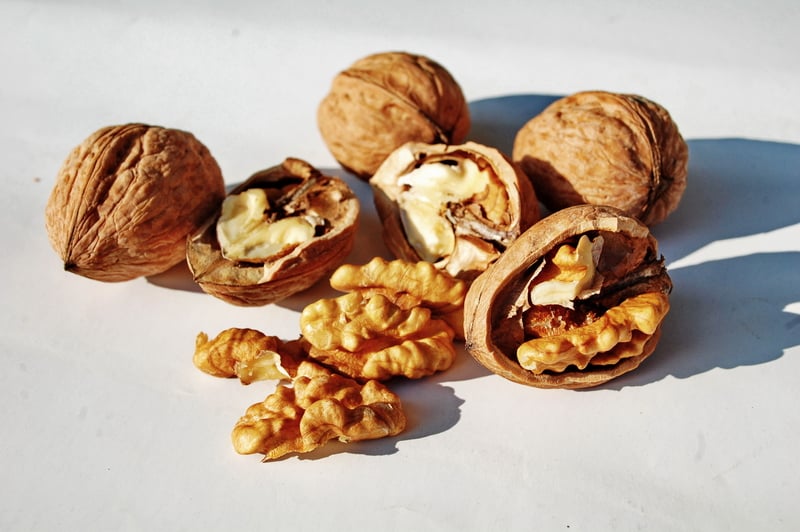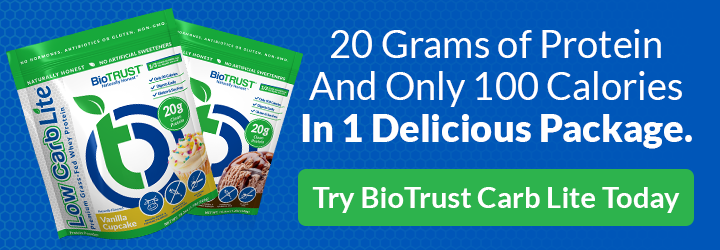Our 5 Favorite Healthy Snacks To Enjoy Between Meals

Choosing a healthy snack can be challenging. Although it may seem like a simple task, there are many considerations as to why it may be easier said than done, which is in part one reason why snacking has gained such a poor reputation. However, the truth of the matter is, snacking is important and can be beneficial in a diet. This is because healthy snacks between meals can increase nutrient intake, sustain energy levels, and help the body recover from exercise. So, while there are mixed feelings when it comes to snacking, the key is to choose snacks that provide the proper fuel to keep you full and energized.
4 Snacking Mistakes to Avoid
Before we dig into the healthy snacks between meals, let’s first address some of the biggest mistakes when it comes to snacking. These are important because if you, like many of us, make these four common mistakes, you may experience some unfavorable results, affecting both your health and weight-loss goals, regardless of whether or not you chose a healthy snack.
Have you ever heard the phrase Kuchisabishii? This is a Japanese phrase for when you are not hungry, but you eat because “your mouth is lonely.” Although this phrase has both an amusing and charming definition, its rough English equivalent translates to eating out of boredom.
When you’re bored, reaching for a snack seems like an obvious and logical thing to do. This is because eating is a powerful stimulus that serves as a coping mechanism to break up the monotony.
Everybody is guilty of this at one time or another, and it is a completely natural thing to do. Nevertheless, it is important to be aware of. Boredom snacking can add on hundreds of unnecessary calories, causing us to drift further away from our nutrition goals.
The next most common mistake when it comes to smart snacking is skipping snacks when you are truly hungry. Snacks are intended to tie you over until the next meal, so it is important to feed your body when experiencing true hunger. If not supplying the body with the energy it needs between meals, you can increase the risk of overeating when you do finally eat.
Additionally, strategically-timed snacks, such as a mid-morning or mid-afternoon snack, can help cut down excessive snacking that may lead to weight gain.
When picking snacks to hold you over in-between meals, you want to choose foods that contains fiber, healthy fats, and protein to help keep you satisfied.
This leads us into the next snacking mistake: not having snacks prepared. When unprepared, it’s easy to fall into eating a food that’s less than nutritious. So, to make reaching for a healthy snack a no-brainer, try to keep healthy snacks on-hand wherever you may need them, such as in the car or at work.
Next on the list of snacking slip-ups is confusing thirst with hunger. Thirst is often misidentified as hunger, causing individuals to grab for food rather than water. One of the best ways to determine if you are thirsty rather than hungry is by drinking a glass of water before eating any food. If you still feel hungry, you can then circle back to a healthy snack.
By avoiding these four snacking mistakes, you will be able to snack smarter and healthier.
Now, then what are the healthiest snacks for between meals?
5 Simple, Healthy Snacks Between Meals
1. Nuts
Nuts are a simple, nutritious, convenient, and portable snack option. They are a good source of plant-based protein and healthy fats and packed with phytonutrients. Many studies have shown that nuts provide various health benefits, especially in reducing heart disease risk factors. The three best nuts for snacking are walnuts, almonds, and pistachios.
2. Yogurt
Yogurt has long been a staple as a healthful snack. Yogurt is a nutrient-packed snack that nourishes the body with calcium and protein, along with B vitamins and minerals, including potassium, phosphorus, and magnesium. However, when picking a yogurt, it is critical to pay attention to the sugar content, specifically added sugars.
Added sugar is a common ingredient in fruit-filled and flavored varieties of yogurt, so it is best to select plain yogurts that contain little or no added sugars. Regardless, when reading through the Nutrition Facts label on plain yogurt, you still will see that it lists “sugar” even though no sugar has been added. This is alright because dairy yogurt contains naturally occurring sugar. You can even make you own Instant Pot yogurt with this step-by-step guide.
3. Hard-Boiled Eggs
Eggs are a complete source of quality protein. One single-serving egg contains 70 calories, 5 grams of fat, 6 grams of protein, and zero carbs. As if that wasn’t good enough, eggs contain vitamins A, D, E, B2, B12, and biotin along with iron, potassium, calcium, and selenium. Boiling eggs keeps the egg intact, does not use any added cooking oils or additives, and makes for a healthy and portable snack.
4. Fresh Vegetables
Vegetables are the most obvious choice for healthy snacking. Not only are there an array of vegetables to choose from, but vegetables are also high in vitamins, minerals, and fiber, which can make them both filling and satisfying. If you consistently enjoy vegetable as snacks, you’ll be well on your way to building a healthier body quickly. Some of my favorite veggies to snack on are carrots, broccoli, and cucumbers.
5. Fruit
Today, many people are worried that fruit is too high in carbs, sugar, and calories, but fruit can definitely be considered a healthy snack! The sugar in fruit is naturally occurring and comes packaged with fiber, micronutrients, and an abundance of antioxidant phytonutrients—all of which have the potential to boost health and even support weight loss.
The average American does not eat enough servings of fruit, so including fruit as a snack will help many meet their daily requirements. Some great fruits for snacking include berries, bananas, apples, and grapefruit.
Choosing a healthy snack does not have to be complex or difficult. Although the snacks above may be simple, they are anything but as they are loaded with beneficial nutrients. By strategically preparing for your snacks in advance, you will also be able to save time and opt for healthier snack options. Subsequently, by consuming more nutrient-dense foods throughout the day, you’ll sustain energy levels and improve health.
Of course, the choices above aren’t the only healthy snacks between meals. There are hundreds of healthy snacks that can be customized to match your preferences and lifestyle. If you want to get more creative with your snacks, check out these other 6 DIY healthy snacks or these 4 on-the-go healthy snacks.




 7 Signs Your Body is Seriously Low on Collagen (not just wrinkles)
7 Signs Your Body is Seriously Low on Collagen (not just wrinkles) Health Expert: "Turmeric Doesn't Work (unless...)"
Health Expert: "Turmeric Doesn't Work (unless...)" 3 Warning Signs Your Probiotic Supplement is a Total Waste
3 Warning Signs Your Probiotic Supplement is a Total Waste

